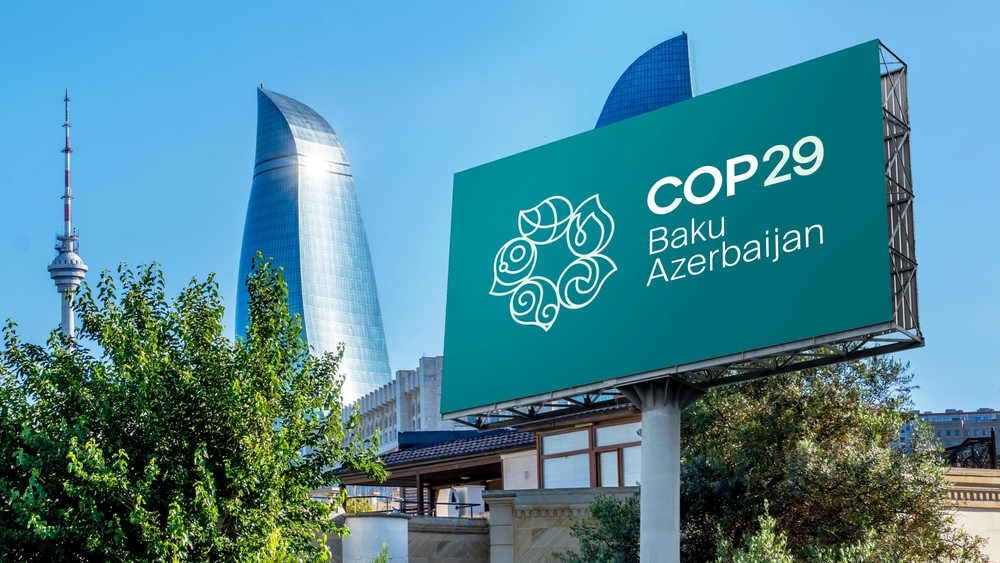
© Zulfugar Graphics/Shutterstock
With less than a month left before the United Nations Climate Change Conference in Baku, the clock is ticking down on any potential document to be signed by Armenia and Azerbaijan to end over three decades of conflict
Many remain skeptical that such a breakthrough can materialise, though it is clear that international pressure, especially from the United States, continues unabated. It is believed that both Yerevan and Washington hope to have an agreement signed before the U.S. presidential elections on 5 November and especially by COP29 just days later.
Though its policy could change if the incumbent U.S. administration was to lose power, Armenia still appears eager to continue its diversification away from Moscow. On 31 August, Russian Federal Security Service (FSB) border guards departed Yerevan’s Zvartnots International Airport. Earlier this month, it was also announced that next year they will be withdrawn from the checkpoint on the Iranian border, following a bilateral meeting held in Moscow between Armenian Prime Minister Nikol Pashinyan and Russian President Vladimir Putin.
Crucially, however, Russian border guards will not be withdrawn from the actual Iranian and Turkish borders, though they will be joined by an unknown number of Armenian National Security Service (NSS) guards. Even so, disagreement between Yerevan and Baku on the unblocking of regional transportation and communication, especially restoration of the Soviet-era link between Azerbaijan and its Nakhchivan exclave, continues, as does the rivalry between Moscow and Washington over the route even though it has been removed from the treaty itself.
With that issue left for later, it had been anticipated that the unofficial deadline by COP29 for an agreement to normalise relations between Armenia and Azerbaijan was in reach. Indeed, on 12 October, Armenian President Vahagn Khachaturyan, told media that such a deal is possible within the coming weeks prior to COP29. Signals from Baku, however, are not so hopeful with continued disagreement over the number of articles or points that should be contained within the treaty. Azerbaijan stresses the importance of including 17, while Yerevan says that 13 or 16 could be signed with the remaining ones delayed.
Baku also maintains that the Yerevan must change its constitution by removing a controversial preamble contained within that references the 1990 Declaration of Independence and a 1989 Joint Declaration on the “Reunification of the Armenian SSR with Mountainous Karabakh”, the ethnic Armenian region of Azerbaijan that saw almost its entire population flee en masse to Armenia in September last year. Though Pashinyan acknowledged last year how it complicated relations with both Azerbaijan and Turkey, in recent weeks he has changed his position, claiming that it is the Azerbaijani constitution that makes claims on Armenian territory.
Nonetheless, earlier this month the Armenian Constitutional Court ruled that a landmark agreement on regulations to demarcate the Armenia-Azerbaijan border did not violate this provision. Baku begs to differ.
The Armenian opposition, however, maintains that despite his public comments, Pashinyan is ready to sign anything dictated by Baku. Some even maintain that that the United States and the European Union also favour a quick agreement. Even so, despite the anti-Pashinyan movement led by revanchist cleric Archbishop Bagrat Galstanyan resuming protests at the beginning of September, it barely managed to gather 1,900 people in Yerevan’s central Republic Square. Marching on Armenian Public TV, Galstanyan forced the station to give him airtime during which he called on the public to join the next demonstration. That failed too.
With Armenians due to go the polls by mid-2026 if not earlier, the situation could worsen unless some kind of breakthrough is achieved by next year. There are already doubts about whether the country can truly diversify away from Russia without at least an open border with Turkey, it too still apparently contingent on signing a deal with Azerbaijan. In late September, on the sidelines of the United General Assembly meeting in New York, Pashinyan held bilateral talks with Turkish President Recep Tayyip Erdogan.
But the processes do continue and on 18 October, the latest meeting of the 3+3 regional platform, effectively 3+2 with Tbilisi still refusing to participate, the Armenian, Azerbaijani, Iranian, Russian and Turkish foreign ministers will meet in Istanbul. Meanwhile, on 15 October, the Armenian government revealed that, while in Moscow for the Commonwealth of Independent States (CIS) meeting of leaders a week earlier, Pashinyan had proposed that the Armenian and Azerbaijani foreign ministers should meet for two days of talks to agree on some of the outstanding points in a bilateral agreement before COP29 in Baku.
Before then, Aliyev, Erdogan, Pashinyan and Putin are expected to participate in the BRICS summit in Kazan, Russia, next week. This makes the days and weeks ahead before COP29 very critical indeed.






 To Top
To Top